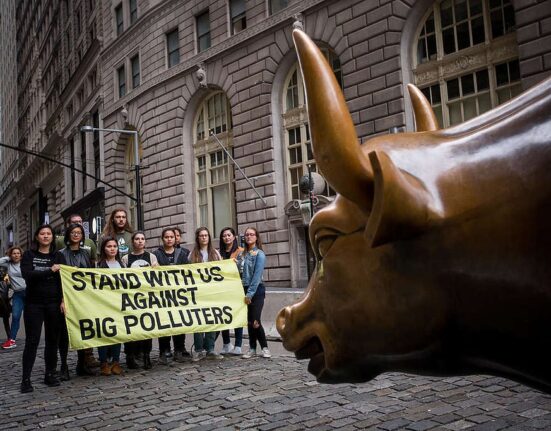Amid a backdrop of pristine beaches and crystal-clear waters in South Australia, a sinister phenomenon has been unfolding. An algal bloom, with its toxic grip, is wreaking havoc on the marine ecosystem along the state’s coast. The situation has escalated to such an extent that dead marine life is now washing up on shorelines from the eastern Yorke Peninsula to Kangaroo Island.
The ominous signs first appeared as foam buildup on Waitpinga Beach back in March—a foreshadowing of the impending ecological crisis. As the algal bloom extended its reach, commercial fishers found themselves grappling with dwindling catches and economic strain. The fishing industry was plunged into uncertainty as Karenia mikimotoi, the algae responsible for this environmental upheaval, spread its toxic presence.
In response to the escalating crisis, the South Australian government took action to alleviate some of the burdens faced by affected fishers. Environment Minister Susan Close acknowledged the severe impact of the algal bloom, estimating that tens of thousands of marine creatures had succumbed to its lethal effects along the coastline.
“The latest results of monitoring confirm our fears—the presence of Karenia mikimotoi in Port River at significant concentrations around Garden Island and Outer Harbor,”
remarked Minister Close during a press briefing. While highlighting that current levels were not as alarming as in earlier stages when a massive algae mass loomed large off Kangaroo Island, she emphasized the importance of ongoing surveillance.
The gravity of the situation prompted swift measures from authorities. A relief package totaling $500,000 was unveiled to provide financial respite for struggling commercial fishers affected by the crisis. This initiative included waivers for license fees and audit costs for eligible fishers between April and June—an attempt to cushion them against mounting losses.
Primary Industries Minister Clare Scriven underscored the significance of this support for impacted fishers:
“We can provide up to $500,000 in fee relief… so those who have been unable to fish or have incurred costs without substantial catches can have their fees waived.”
She emphasized that such assistance could be pivotal for small businesses reliant on consistent cash flow.
Efforts are underway to secure broader recognition and support at a national level for what is increasingly being perceived as a significant environmental disaster. Discussions are ongoing with federal counterparts to explore avenues for additional assistance and intervention in light of the unprecedented scale and impact of this algal bloom outbreak.
Chairperson Ben Barnes from The South Australian Professional Fishers Association expressed gratitude for fee waivers while warning that challenges may intensify moving forward:
“We haven’t seen [the] worst… devastation [is] absolutely unreal.”
The emotional toll on local communities reverberates through his words as he laments an environment stripped bare by nature’s relentless force.
As authorities grapple with containment efforts and long-term implications, one thing remains clear—the battle against this formidable algal bloom is far from over. Its ripple effects extend beyond marine life alone; they touch upon livelihoods, ecosystems, and communities reliant on these coastal waters for sustenance and prosperity.





Leave feedback about this